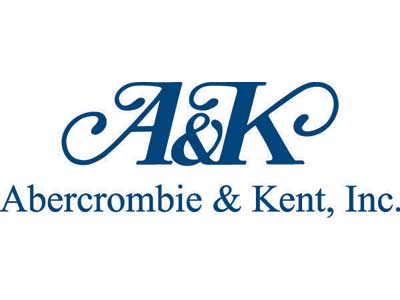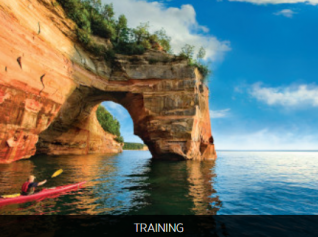Tourism – the next big thing in Fair Trade?

Making Fair Trade Tourism part of the value proposition will enable South Africa and neighboring countries to attract new tourist arrivals writes Jennifer Seif.
May 12th marked World Fair Trade Day, celebrated annually by the World Fair Trade Organisation (WFTO). WFTO and sister organisations like Fairtrade International and national Fairtrade Labelling Initiatives in Europe and elsewhere aim to transform international trade — particularly in sectors like agriculture and textiles — in favour of structurally disadvantaged producers and workers located in the global South. Fair trade labels are an effective mechanism for linking sustainably produced and fairly traded products from developing countries with the growing numbers of socially and environmentally conscious consumers in Europe, North America and Australasia. The global annual value of Fairtrade sales equalled €4.36 billion in 2010, up by 28% on the previous year, demonstrating that even in difficult economic times significant numbers of consumers remain loyal to the values underpinning fair trade.
Fair trade faces various challenges, particularly increasing market penetration to extend benefits to higher numbers of producers and workers. In spite of these challenges, according to Fairtrade International, sales of Fairtrade products currently contribute to improved livelihoods for some 1.2 billion people in developing countries in Africa, Latin America and Asia.
Somewhat uniquely in the world, South Africa is both a producer and consumer of Fair trade products. In addition to exporting wine, fruit, tea, craft, natural and other categories of products to European and other markets, South Africa is home to a national Labelling Initiative: Fairtrade Label South Africa (FLSA). FLSA is working to make Fairtrade products available on local retail shelves, and late last year joined forces with the iconic Cadbury Milk Bar so that today every unit produced and sold in our country carriers the Fairtrade mark.
Voluntary standards and labels are a major driver of sustainable consumption and production, a cornerstone of the Rio+20 conference taking place in June. Rio+20 aims to create a framework for a greener, more inclusive global economy, and here social standards and labels are a necessary complement to their "green" kissing cousins. Corporate and public awareness about forced and child labour and other human rights issues is on the rise, as are calls for trade and climate justice. Growing numbers of consumers around the world including certain segments in developing countries like South Africa want to make more informed purchasing decisions that benefit both people and the environment.
Credible social and environmental labels are a useful tool for guiding consumer decision-making and guarding against fairwash and greenwash.
World Fair Trade Day 2012 also marked the start of the annual Tourism Indaba travel fair, which is South African tourism’s flagship event, attracting some 2,000 exhibitors and 13,000 visitors to Durban each year. Tourism is an emerging fair trade sector, rooted in a particular set of challenges and opportunities. Travel and tourism is the world’s 4th largest export industry, after fuels, chemicals and automotive products. The industry employs some 250 million people worldwide and contributes about 5% to global GDP.
In most counties, including South Africa, tourism is thus an important engine of job creation, foreign investment and small business development. South Africa currently receives nearly 1% of all international tourist arrivals and aims to double its market share and become a top 20 destination by 2020.
Tourism is often said to be "pro poor" (that is to say, good for poverty reduction) because it is labour intensive; based on natural and cultural assets that the economically poor have access to; has relatively low barriers to entry; is characterised by multiple backward, forward and horizontal linkages; and tends to employ fairly high numbers of women and youth.
But tourism growth – especially rapid growth – carries social and environmental costs to people living in destinations. Travel and tourism is natural, cultural and human resource-dependent and in addition to its environmental impacts, tourism can create social and other problems that damage destinations and communities, to the detriment of the economically poor. Research by advocacy organizations shows that labour standards in tourism are amongst the worst in the world, and that human rights challenges are on the rise, linked for example to competition over land, water, energy and other resources. If the underside of the industry is not reformed, and if the people whose land, labour, culture and natural resources are used for tourism activities do not benefit meaningfully from the sector, then sustainable development objectives will not be achieved.
Since 2003, a South African non-profit organisation, Fair Trade in Tourism South Africa (FTTSA), has operated a voluntary certification system that awards the use of a special label to tourism businesses in South Africa that adhere to a locally developed Fair Trade Tourism standard. FTTSA is now expanding into southern Africa to create a regional Fair Trade Tourism system that could one day form the basis for a worldwide tourism Fairtrade label.
That the marriage of fair trade and tourism is led from South Africa is historically and politically significant, as standard-setting, labelling and market development are typically driven from the North. It is hardly surprising, though, given South Africa’s strong policy focus on responsible tourism. This dates to the Tourism White Paper published in 1996 and is manifest in the many best practice examples of sustainability that are found throughout South Africa’s tourism private sector. South Africa published a national minimum standard on Responsible Tourism in September 2011, which is aligned to the Global Sustainable Tourism Criteria while also highlighting issues particular to the post-apartheid context and the need to build a more inclusive economy. .
An important new mechanism to bring Fair Trade tourism products to market is the concept of a "Fair Trade holiday", which assembles certified products into a single offering. Holidays are certified by FTTSA based on a trade standard that ensures fair pricing, pre-payment, transparency and commitment to sustainable trade. Sales of Fair Trade holidays can be measured, and outbound tour operators make a mandatory contribution per arrival to a special fund that supports job creation, skills development and decent work in destinations. There are currently 13 holidays for sale in Europe and to date development contributions and certification costs incurred by tour operators are not being passed on to consumers, meaning Fair Trade holidays are not, by definition, more expensive than their conventional counterparts.
Fair Trade holidays to South Africa and soon to southern Africa are designed to appeal to international consumers who buy fair trade. Some 96% of British, 75% of Dutch, 69% of German and 90% of Swiss consumers know and trust the Fairtrade mark. Research shows that a considerable number of domestic holiday-makers also aspire to travel responsibly, and choosing a FTT-certified accommodation or activity assures that tourism is structured and managed in a way that is good for people, business and the environment.
Fair Trade adds value to the tourism experience, which by definition brings the consumer to the producer and often places tourists in proximity to the realities of rural and urban poverty. Fair Trade holidays premised on equitable and respectful exchange between hosts and visitors can thus help to drive demand for sustainable consumption "back home."
Making Fair Trade Tourism part of the value proposition will enable South Africa and neighboring countries to attract new tourist arrivals by appealing to the growing ranks of sustainability-savvy consumers living in our major source markets. These are precisely the types of tourists we want to see more of: people who care about the quality of life of ordinary South Africans.
By measuring uptake of Fair Trade holidays FTTSA hopes to demonstrate the business case for Fair Trade tourism so that one day, in the not too distant future, tourism will become part of the international Fairtrade system and consumer loyalty to the Fairtrade mark can be leveraged to help drive sustainable tourism development in Africa and beyond.
Jennifer Seif is FTTSA Executive Director and a Non-Executive Director of FLSA.
[email protected]
Keep up with the latest sustainable tourism info, special offers HERE
 United Kingdom
United Kingdom United States
United States Asia Pacific
Asia Pacific












































EU airports bring back 100ml liquid rule
CLIA: Anti-cruise demos could cause itinerary changes in Europe
Co-pilot faints, easyJet flight issues ‘red alert’
Dozens fall ill in P&O Cruises ship outbreak
Woman dies after getting ‘entangled’ in baggage carousel